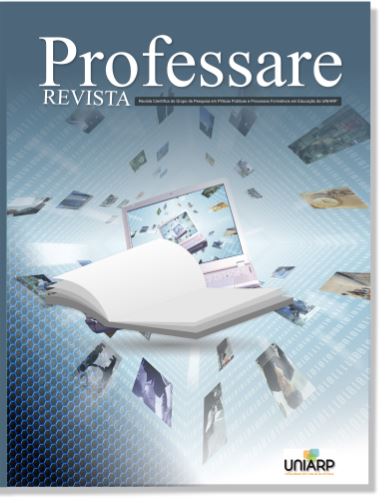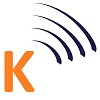PEDAGOGIC PROCESSES USING DIGITAL RESOURCES: EXPERIENCES AT A MUNICIPAL SCHOOL IN GOIÂNIA
PEDAGOGIC PROCESSES USING DIGITAL RESOURCES: EXPERIENCES AT A MUNICIPAL SCHOOL IN GOIÂNIA
DOI:
https://doi.org/10.33362/professare.v12i2.3214Keywords:
Escola, Processos Pedagógicos, Tecnologias, Mediação Pedagógica, CelularAbstract
The use of technologies and digital resources has become increasingly present in today's society and its insertion permeates the various spheres of society. Bringing it to the educational context, we have the following problem: How can the school contribute to the (comprehensive) training of its students through the use of digital and technological resources? In this sense, this study has the objective of reflecting on the pedagogical practices developed and experienced at the Pedro Gomes de Menezes Municipal School (Goiânia/Goiás), with the use of technologies. To do so, discuss pedagogical mediation and understand the use of technologies and digital resources as instruments/resources in pedagogical processes. To enable this reflection, a bibliographical research was carried out, based on: Da Cunha and Suanno (2021), Goedert and Arndt (2020), Masetto (2013), Moraes (2000), Morin (2000), Narikawa and Rodrigues (2021), Rodrigues, Sabota and Silvestre (2021) and Serafim and Sousa (2011). They were taken as documents and interpreted from the perspective of complexity, with a qualitative approach, a news from the newspaper "O Hoje" about the school in question, together with a statement from the board of the teaching unit. It is believed that when understood as resources in the pedagogical processes to be mediated by teachers, technologies can contribute to a more effective, humane and true education.
References
ALMEIDA, Beatriz Oliveira; ALVES, Lynn Rosalina Gama. Letramento digital em tempos de COVID-19: uma análise da educação no contexto atual. [TESTE] Debates em Educação, v. 12, n. 28, p. 1-18, 2020. Disponível em: https://www.seer.ufal.br/index.php/debateseducacao/article/view/10282. Acesso em: 27 jul. 2023.
DA CUNHA, Regina Célia Alves; SUANNO, João Henrique. EDUCAÇÃO MEDIADA POR TECNOLOGIAS DIGITAIS. Revista Plurais-Virtual (e-ISSN 2238-3751-ISSN 1984-3941), v. 11, n. 1, p. 10-23, 2021. Disponível em: https://revista.ueg.br/index.php/revistapluraisvirtual/article/view/12279. Acesso em: 22 jun. 2023.
EDUCARA. Facebook: Educara e Escola Municipal Pedro Gomes de Menezes. Goiânia, 31, outubro, 2019. Disponível em: https://m.facebook.com/watch/?v=1687535818047123&paipv=0&eav=AfZow3wgoU0Pjdr1fH0tTD1_TivtnG9BDb-zRmKtnwZ7W-rFtvfRs2_KFD9kOYB3uyU&_rdr#_=_. Acesso em: 27 jul.2023.
GOEDERT, Lidiane; ARNDT, Klaulter. Mediação pedagógica e educação mediada por tecnologias digitais em tempos de pandemia Criar Educação, Criciúma, v. 9, nº2, Edição Especial, 2020.– PPGE – UNESC – ISSN 2317-2452. Disponível em: https://periodicos.unesc.net/ojs/index.php/criaredu/article/view/6051. Acesso em: 27 jul. 2023.
MASETTO, Marcos T. Mediação pedagógica e tecnologias de informação e comunicação. In: MORAN, José M.; MASETTO, Marcos T.; BEHRENS, Maria A. (Org.) Novas tecnologias e mediação pedagógica. Campinas: Papirus, 2013.
MORAES, Maria Cândida. Tecendo a Rede, mas com que Paradigma? Núcleo de informática Aplicada à Educação – NIED. Universidade Estadual de Campinas – Unicamp. Cidade Universitária “Prof. Dr. Zeferino Vaz”. Conferência apresentada no Encontro Internacional de Educação para a Paz, “The Future of our Children”. Universidade de Genebra: setembro, 2000. Disponível em: https://www.nescon.medicina.ufmg.br/biblioteca/imagem/2518.pdf. Acesso em: 27 jul. 2023.
MOREIRA, Daniel Augusto. A pesquisa empírica e suas variantes. São Paulo: Pioneira, 2004.
MORIN, Edgar. Os sete saberes necessários à educação do futuro. 2. ed. São Paulo: Cortez; Brasília, DF: UNESCO, 2000.
NARIKAWA, Thiago Augusto; RODRIGUES, Olira Saraiva. A educação brasileira e novos rumos pós-pandemia. In: REIS, Marlene Barbosa de Freitas; MOREIRA, Cleumar de Oliveira; ANDERI, Eliane Gonçalves Costa (Orgs.). Educação, resistência e esperança: diálogos interdisciplinares. 1ed. Anápolis: Editora UEG, 2022, v. 1, p. 152-171.
RODRIGUES, Michael; SABOTA, Barbra; SILVESTRE, Viviane. Construções de sentidos sobre o conceito de mediação pedagógica: uma leitura multimodal e rizomática. Revista Educação e Linguagens, Campo Mourão, v.10, n.19, jan/jun. 2021. Disponível em: https://periodicos.unespar.edu.br/index.php/revistaeduclings/article/view/6651. Acesso em: 27 jul. 2023.
SERAFIM, Maria Lúcia; SOUSA, Robson Pequeno de. Multimídia na educação:
O vídeo digital integrado ao contexto escolar. In: Robson Pequeno de Sousa, Filomena da M. C da S. C. Moita, Ana Beatriz Gomes Carvalho (Organizadores). Tecnologias digitais na educação - Campina Grande: EDUEPB, 2011. Disponível em: https://static.scielo.org/scielobooks/6pdyn/pdf/sousa-9788578791247.pdf. Acesso em: 22 jun. 2023.
SEVERINO, Antônio Joaquim. Metodologia do trabalho científico. Cortez, v. 7, p. C3, 2013.
SOUSA, Sheyla; MARTINS, Isabela. Projeto leva celulares para sala de aula. O Hoje, Goiânia, 02, março, 2019. (Figura 1). Disponível em: https://ohoje.com/noticia/cidades/n/161531/t/projeto-leva-celulares-para-sala-de-aula/. Acesso em: 27 jul. 2023.
Downloads
Published
How to Cite
Issue
Section
License
Copyright (c) 2023 Professare

This work is licensed under a Creative Commons Attribution-NonCommercial-NoDerivatives 4.0 International License.
Autores que publicam nesta revista concordam com os seguintes termos:- Autores mantém os direitos autorais e concedem à Revista o direito de primeira publicação, com o trabalho simultaneamente licenciado sob a Licença Creative Commons Attribution que permite o compartilhamento do trabalho com reconhecimento da autoria e publicação inicial nesta Revista.
- Autores têm autorização para assumir contratos adicionais separadamente, para distribuição não-exclusiva da versão do trabalho publicada nesta Revista (ex.: publicar em repositório institucional ou como capítulo de livro), com reconhecimento de autoria e publicação inicial nesta Revista.
- Autores têm permissão e são estimulados a publicar e distribuir seu trabalho online (ex.: em repositórios institucionais ou na sua página pessoal) a qualquer ponto antes ou durante o processo editorial, já que isso pode gerar alterações produtivas, bem como aumentar o impacto e a citação do trabalho publicado (Veja O Efeito do Acesso Livre).









